
Erik Brynjolfsson is an American academic, author and inventor. He is the Jerry Yang and Akiko Yamazaki Professor and a Senior Fellow at Stanford University where he directs the Digital Economy Lab at the Stanford Institute for Human-Centered AI, with appointments at SIEPR, the Stanford Department of Economics and the Stanford Graduate School of Business. He is also a research associate at the National Bureau of Economic Research and a best-selling author of several books. From 1990 to 2020, he was a professor at MIT.
The Sword of Damocles is widely misattributed as the name of the first AR display prototype. According to Ivan Sutherland, this was merely a joke name for the mechanical system that supported and tracked the actual HMD below it. It happened to look like a giant overhead cross, hence the joke. Ivan Sutherland's 1968 ground-breaking AR prototype was actually called "the head-mounted display", which is perhaps the first recorded use of the term "HMD", and he preferred "Stereoscopic-Television Apparatus for Individual Use."

Alex Paul "Sandy" Pentland is an American computer scientist, the Toshiba Professor of Media Arts and Sciences at MIT, and serial entrepreneur.
Kent Larson is an architect and Professor of the Practice at the Massachusetts Institute of Technology. Larson is currently director of the City Science research group at the MIT Media Lab, and co-director with Lord Norman Foster of the Norman Foster Institute on Sustainable Cities based in Madrid. His research is focused on urban design, modeling and simulation, compact transformable housing, and ultralight autonomous mobility on demand. He has established an international consortium of City Science Network labs, and is a founder of multiple MIT Media Lab spin-off companies, including Ori Living and L3cities.

Pattie Maes is an American scientist. She is a professor in MIT's program in Media Arts and Sciences. She founded and directed the MIT Media Lab's Fluid Interfaces Group. Previously, she founded and ran the Software Agents group. She served for several years as both the head and associate head of the Media Lab's academic program. Prior to joining the Media Lab, Maes was a visiting professor and a research scientist at the MIT Artificial Intelligence Lab. She holds bachelor's and PhD degrees in computer science from the Vrije Universiteit Brussel in Belgium.
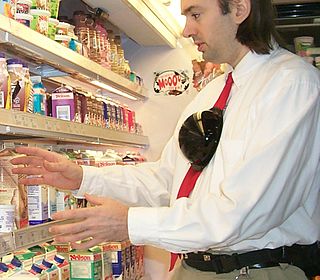
SixthSense is a gesture-based wearable computer system developed at MIT Media Lab by Steve Mann in 1994 and 1997, and 1998, and further developed by Pranav Mistry, in 2009, both of whom developed both hardware and software for both headworn and neckworn versions of it. It comprises a headworn or neck-worn pendant that contains both a data projector and camera. Headworn versions were built at MIT Media Lab in 1997 that combined cameras and illumination systems for interactive photographic art, and also included gesture recognition.
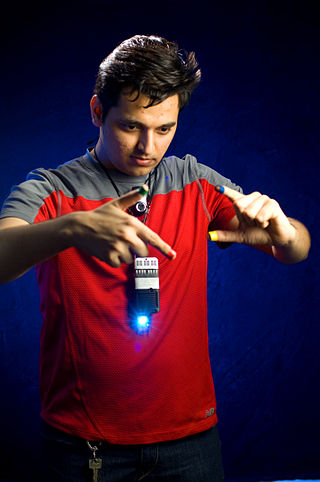
Pranav Mistry is a computer scientist and inventor. He is the former President and CEO of STAR Labs. He is currently the founder and CEO of TWO, an Artificial Reality startup. He is best known for his work on SixthSense, Samsung Galaxy Gear and Project Beyond.
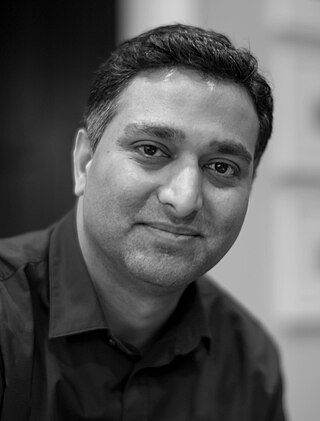
Ramesh Raskar is a Massachusetts Institute of Technology associate professor and head of the MIT Media Lab's Camera Culture research group. Previously he worked as a senior research scientist at Mitsubishi Electric Research Laboratories (MERL) during 2002 to 2008. He holds 132 patents in computer vision, computational health, sensors and imaging. He received the $500K Lemelson–MIT Prize in 2016. The prize money will be used for launching REDX.io, a group platform for co-innovation in Artificial Intelligence. He is well known for inventing EyeNetra, EyeCatra and EyeSelfie, Femto-photography and his TED talk for cameras to see around corners.
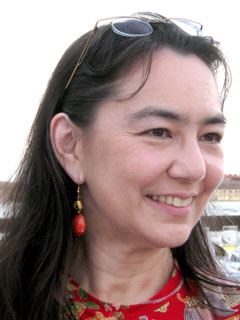
Tamiko Thiel is an American artist, known for her digital art. Her work often explores "the interplay of place, space, the body and cultural identity," and uses augmented reality (AR) as her platform. Thiel is based in Munich, Germany.

David L. Rose is a product designer and entrepreneur, and the CEO of Clearwater AR.

Sunil Shivaji Khandbahale is an Innovator and Entrepreneur from Nashik, India. He is the founder and CEO of KHANDBAHALE.COM, a free multilingual digital dictionary and translation platform for 23 languages, with a vocabulary of 10 million words and phrases. He is a technology and innovation columnist.

Meron Gribetz is an Israeli technology entrepreneur. He was the founder and CEO of Meta, a Silicon Valley technology company that produced augmented reality products, closed in 2019. He was a founder of Inner Cosmos, makers of a digital pill designed to re-balance brain networks, and continued as CEO As of 2023.
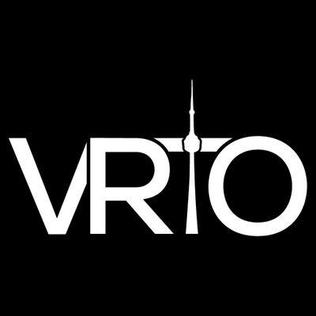
VRTO was founded in 2015 by Keram Malicki-Sánchez as a Meetup group dedicated to virtual reality in Toronto. In June 2016, VRTO launched the VRTO Virtual & Augmented Reality World Conference & Expo, a professional event focused on exploring arts, culture, and science through immersive technologies.
Dhairya Dand is an Indian-American inventor and artist based in New York City.
Conor Russomanno is an American entrepreneur, inventor, and public speaker, specializing in the development of advanced human-computer interfaces. He is the co-founder and CEO of OpenBCI, a company dedicated to open source innovation of brain-computer interface technologies. Russomanno has also served as an adjunct professor at Parsons School of Design and NYU Tisch School of the Arts, and as a Research Affiliate at the MIT Media Lab. In 2018, he was honored on the Forbes 30 Under 30 list in the category of Science. In April 2023, Russomanno delivered a TED Talk that featured a spectacular assistive technology BCI and AR demonstration to help a friend living with severe motor disabilities, Christian Bayerlein, fly a drone over the audience.
Laurent Adamowicz is a French businessman, entrepreneur, lecturer, author, and public health advocate. He is the founder and president of the public charity EChO – Eradicate Childhood Obesity Foundation and a member of the Harvard T.H. Chan School of Public Health Nutrition Round Table.

David Moinina Sengeh is a Sierra Leonean politician who has served as the chief minister of Sierra Leone after being appointed by President Julius Maada Bio in 2023. He previously served as the minister of basic and senior secondary education and chief innovation officer for the Directorate of Science, Technology and Innovation. He is a TED Senior Fellow.

Young Sohn (Korean: 손영권) is a Korean-American business executive and investor. He was the president and chief strategy officer of Samsung Electronics. Sohn is also the chairman of the board of Harman International Industries, a subsidiary of Samsung Electronics, and currently serves as Senior Advisor to Samsung.
Tulanana Bohela is a Tanzanian entrepreneur, journalist and filmmaker. Her career spans close to 10 years, reporting in Tanzania and the East African region on TV, radio and digital for BBC Africa and BBC Swahili. She became the digital lead in Tanzania for the BBC World Service.

Beau Lotto is a visiting scholar at New York University. His research explores how the brain adapts to uncertainty at the cellular, computational and perceptual levels with the aim of understanding the fundamental principles of biologically-inspired innovation.














